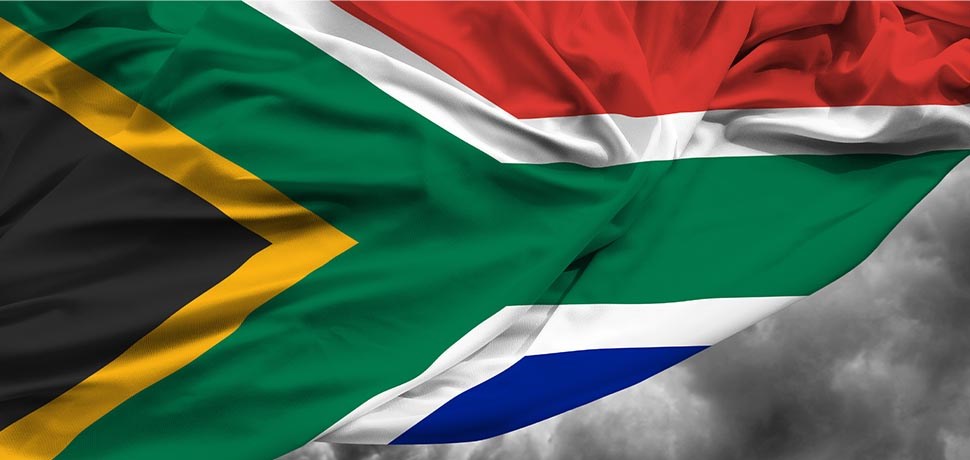Lessons from Alvaro Uribe: Rebuilding SA's Future Amidst Crisis
Read more on how David Shapiro recounts meeting Alvaro Uribe in 2011 and discusses lessons for South Africa's future, highlighting the need for peace, security, and capable leadership.

I have dined out countless times on my story of attending an investment conference in California, nearly thirteen years ago, and meeting the former president of Colombia Alvaro Uribe Vélez. The substance of Alvaro’s keynote address is as vital to me today as it was back then, particularly in light of Friday’s news that South Africa will be administered by a government of national unity. After decades of economic and political impotence, we have been given a fresh opportunity to reset our sights and become the nation we embraced so enthusiastically in 1994. Except, this time we do not have a Nelson Mandela to court the rest of the world, out economy is in tatters, and our state institutions are in a sad state of disrepair. A turnaround is certainly achievable but will require a fresh mindset, hard work, and dutiful leadership.
In November 2011, I was invited to talk at an investment conference in Monarch Beach, California, hosted by a Canadian mining group. I was flown, Business Class, halfway around the world, and accommodated in a suite at the St Regis Hotel fit for the Kardashians, all to deliver a short speech on local mining opportunities that most attendees, nursing tequila hangovers from the previous evening’s festivities, chose to skip.
Before the start of the conference, wandering lost and forlorn on the patio, a gentleman beckoned me to join his breakfast table. I extended my hand in appreciation and introduced myself. “I’m David Shapiro, from Sasfin in Johannesburg.” “I’m Alvaro Uribe,” he smiled shaking my hand. “So, what do you do, Alvaro?” I enquired.
Alvaro was president of Colombia from 2002 until 2010. Colombia is the third largest Spanish speaking country in the world, after Mexico and Spain, with a population of 52 million. Its economic output in 2011 was on a par with South Africa.
In the opening address, Alvaro confessed that, since the nation declared independence from Spain in 1810, its liberty had been undermined by murders, terrorist attacks and civil strife. In Colombia’s 200-year history, only 47 had been lived in relative peace. Up until he took office, he could not recall a single year of his life that was free of violence and unrest, perpetrated by either the pro-Marxist groups on the left or paramilitary troops, linked to narcotic traders, on the right.
Unacceptably high levels of crime and corruption were destroying hope in Colombia, scaring investors, raising unemployment, and driving out skills. Colombia in 2002 seemed strikingly familiar to where South Africa was back in 2010 and remains so to this day; a nation low on confidence, floored by crime and corruption and frustrated by a lack of investment, jobs, and capable administrators.
In Alvaro’s 8-year term, he worked tirelessly and courageously with outstanding success confronting the many issues that were dragging his country down. There were three features in his presentation that stood out for me and remain germane as we look to rebuild our people’s belief in South Africa’s future.
In a talk to students when he first took office, he asked how many in the class wanted to leave the country. The entire audience put up their hands. He realised that without peace and security there would be no growth. No one would invest in a country in which they did not want to live. Without the skills and fiscal resources, the government could not enhance the nation’s wellbeing.
The second element of his strategy, aimed at reclaiming the people’s trust, was the belief that all citizens should participate in the administration’s decision-making process and, accordingly, he set up agencies in every region to promote dialogue, exchange ideas and discuss policies. The hearings he introduced were open and publicly televised. His ‘Communitary State’ was a participative government with no division between left and right, no leanings towards liberalism, socialism, or bureaucracy. There would be no promises without solutions.
The third facet of his plan was to address bloated government offices. Alvaro believed that the greater the number of bureaucrats, the poorer the country. He restructured more than 400 government departments, decreasing payrolls, and improving efficiencies, along the way slashing the number of official motor vehicles by a third.
Unfortunately, space does not allow me to cover his policies and the execution of these in greater detail. Crime diminished, support from the IMF and World Bank increased, private participation in the economy grew, exports rose four-fold, and the cultivation of illicit crops was slashed. Alvaro’s efforts did not escape the rest of the world. In 2009 he was awarded America’s Presidential Medal of Freedom, the country’s highest civilian decoration, for his work to improve the lives of his citizens.
All of this came at a price. 17 attempts were made on his life, cities were bombed, and senators, judges, and other officials were murdered.
The mood in South Africa at present is filled with hope and expectation. Yet, after years of maladministration there is no easy path forward, and investors know it. Even, today, Colombia is not the haven Alvaro envisaged. If we want to prosper, it is up to each one of us to demonstrate to the rest of the world that we’re on the road to recovery. And that starts with making South Africa a country in which we want to live, work, and bring up our children.